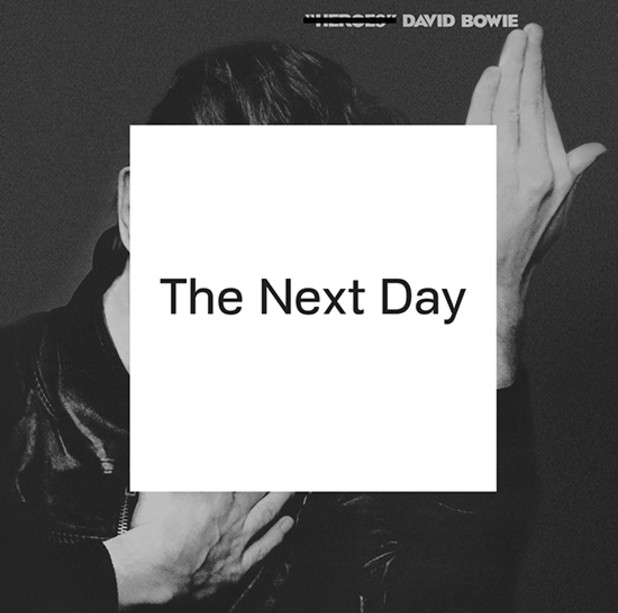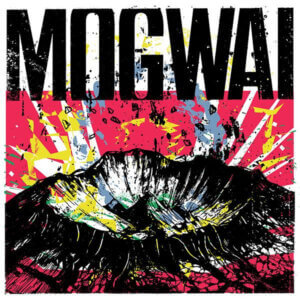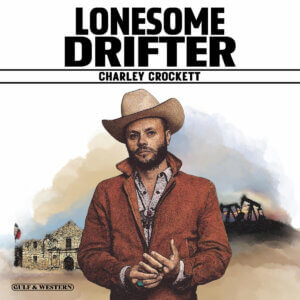
8.5
The Next Day
David Bowie
As music icons go, David Bowie may be the biggest in terms of his wide reach across multi-generations. It’s common for fans to have a very personal connection to the man and his music, and it would probably be quite normal for each of those connections to differ greatly. I first discovered Bowie in my teens as a contrast to my metal tendencies, and it was Let’s Dance that became my gateway album into his world. After going through his discography it would be Hunky Dory that would remain my staple album, although once I got older I reluctantly conceded that Rise and Fall of Ziggy Stardust and the Spiders From Mars was truly the best. These days I’ve settled down, and have become obsessed with Low. Bowie’s influence covers such a wide expanse of time and generations because
of his chameleon like ability to adapt throughout the years, it enables people like myself to keep rediscovering him. Bowie also has an incredible ability to surprise you, like he has done recently by shrugging off rumours of being on his deathbed with the release of his 27th album, his first in 10 years: The Next Day.
When you have an artist that releases new material like The Next Day, it tends to come at you in a bit of a time warp. I already had my personal “Bowie” in my head that being the “Low Bowie” of the Berlin years. Those two albums being 36 years apart you’d expect there to not be much similarity. However both albums were produced by Tony Visconti, the album thematically is recalls the low period in Bowie’s life, which is also mirrored by the cover art which is take-off on the second of the Berlin trilogy Heroes which came right after Low. All of that and then the title track “The Next Day” right off the hop is immediately reminiscent of the first track on Low: “The Speed of Life”. This of course is just what I’m reading into it, but when Bowie has been an influence on almost your entire music listening
life, it’s common to create your own narrative with his music. The Next Day is more like the third album of what you may call the “New York Trilogy” of albums that started with Heathen and followed by Reality. Those albums were also produced by Visconti and see a Bowie that is now in the twilight of not only his career, but probably his life as he moved to the city with his wife and young child. The songs though are some of the strongest he’s ever written, perhaps because they focus purely on simple honest structures, and don’t follow any musical trends which is what each new incarnation of Bowie has done. The “New York Years” are pure Bowie songs that are not hidden behind a character, or long
instrumentations, but stand tall like strong building structures. “Love is Lost”, “Where Are We Now?” and “Valentines Day” see Bowie shifting back and forth with simple pop stanzas that keep flowing, and harder edge sounds where Bowie opens up to reveal a complicated man that is not really sure what he’s doing with his life. “If You Can See Me”, “I’d Rather Be High”, and “Boss of Me” sees Bowie delving into the contradicting desires of the man and also hearkens back to the Low era when he was trying to kick his cocaine addiction. “Dancing Out in Space”, “How Does the Grass Grow?”, and “(You Will)
Set the World on Fire” are classic Bowie rockers, which in the context of the album work well, but lack a certain bite that Bowie used to infuse these songs with in previous albums. “You Feel So Lonely You Could Die” and “Heat” bring back the softer more contemplative Bowie which wrap up a mesmerizing album.
Early returns of the album have been positive across the music community. Part of it is kind of shock that not only would he return from what many thought was retirement after a heart attack, but come back with an album that is as deep, complicated, and musical interesting as The Next Day. It’s generally thought that people want their rock stars young and pretty, and that very well could be the case, but Bowie is much more than just a rock star. David Bowie is a different human being, as much as we’ve seen him in different disguises he’s always been one thing: an icon. As long as he still walks this Earth it seems Bowie is here to create music that weaves in and out through many narratives. To listen to Bowie for the first time when you’re a teen is exhilarating, but for that to keep happening throughout your life is an even more incredible experience.
– Michael Unger
Latest Reviews
Tracks
Related Albums
Related News
Advertisement
Looking for something new to listen to?
Sign up to our all-new newsletter for top-notch reviews, news, videos and playlists.









